Everything you need to know about living in Whitehorse
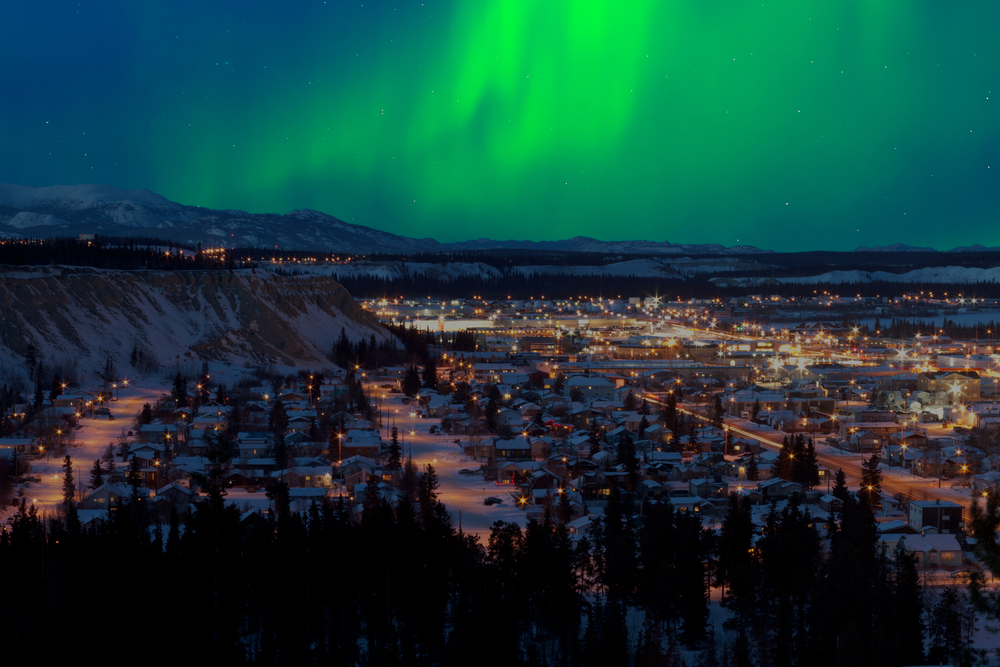
Whitehorse is an unusual place to live, due to its small population and its remote geographical location.
Whitehorse is definitely not full of tourist attractions; people live there more for access to the Yukon than for the city itself. Whitehorse will suit people who like an active lifestyle. The proximity to nature allows you to quickly escape the city and take part in all kinds of outdoor activities.
There are some festivals and events that take place throughout the year. To name just one: the Yukon Quest, which is a dog sled race that happens each February.
Getting to Whitehorse
If you arrive into Whitehorse airport, you can take a taxi or the Route 101 bus to get downtown. The bus takes about 20 minutes and costs CA$2.50; have the exact amount ready because the drivers rarely have change.
If you are staying in a hotel for your first night in Whitehorse, check if your hotel provides a free shuttle to/from the airport.
To rent a car upon arrival, you can use one of the two rental agencies located directly at the Whitehorse airport: Driving Force or Budget.
Public transportation in Whitehorse
Whitehorse is served by several bus lines, but some only operate during the weekdays; others only run from Monday to Saturday. Most lines close down around 6-7 pm. For more information, check the Route Maps & Schedules.
You can buy different types of bus tickets:
- A single ticket costs CA$2.50
- A book of 10 tickets costs CA$23
- A monthly pass costs CA$62 (allows unlimited travel across the entire network for that month)
Check the prices on the official website.
Finding accommodation in Whitehorse
Finding temporary accommodation
For accommodation for your first few days in Whitehorse, there’s nothing better than a youth hostel. There’s only one hostel in Whitehorse: Beez Kneez Bakpakers. Dorm prices start at CA$45. For a single room, you’ll have to pay at least CA$140. Two private cabins are also available seasonally; prices vary.
If you have a car or van that you can camp in, you can sleep almost anywhere, as long as you are following the law and staying outside the city limits. For a proper camping ground, you can try the Hot Springs Campground & Resort Suites. The campground is located 30 km from the city centre; the setting is more peaceful and wild than camping near the city.
There are also many hotels/motels downtown, or nearby RV parks.
In the summer, make sure you have booked accommodation in advance, as it is rare to find a room or camping spot during the peak tourism season.
Finding long-term accommodation in Whitehorse
Once you’ve booked your short-term accommodation, it’s time to turn your attention to securing something more long-term. It will take a lot of persistence and some luck or networking, because there is generally a housing crisis in Whitehorse. Trying to find pet-friendly accommodation will be even trickier.
Look at the classified ads in local paper newspapers (Whitehorse Star, Yukon News, l’Aurore Boréale), in cafes, and posted on the streets. Join the local rentals Facebook group and Kijiji.
Many of the rentals in Whitehorse are “underground”, where they aren’t officially advertised or promoted. If you make contacts in the area, the chances increase proportionally that you’ll be directed to upcoming available properties.
For a room in a shared house, expect to pay around CA$1,000 per month, although this will vary depending on the type of property, the number of roommates and the location. To have a one-bed apartment to yourself, you’ll need to budget around CA$1,800 per month. In most cases, you will then need to add monthly bills to this amount; mainly electricity (Atco) and Internet (Northwestel).
Rentals are subject to a written lease (a copy must be given to you within 21 days of signing). The owner can ask you for a deposit but this cannot exceed the equivalent of one month’s rent. If you rent by the week (which is possible), the amount of the deposit cannot exceed one week’s rent.
Living in a cabin
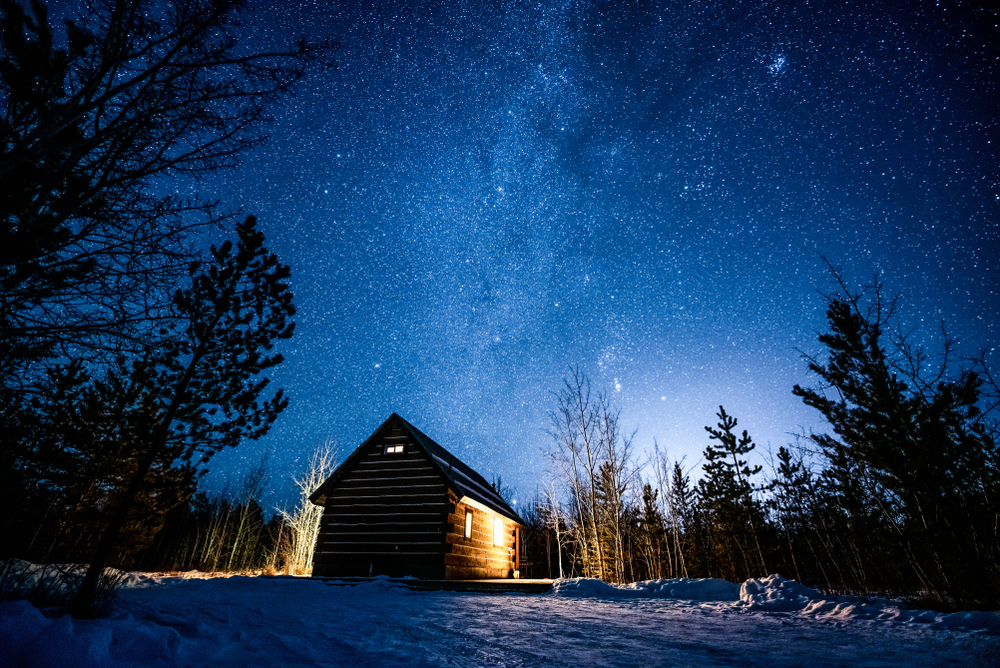
A housing solution specific to the Yukon is the possibility of living in a cabin outside the city. Be warned that many of these have no running water or electricity, and that toilets (dry toilets) can be located outside the house.
If you want to try cabin living, a car is essential (as well as lumberjack skills to run the wood stove in winter!). In return, you will have a unique experience, immersed in nature.
The prices can be high, considering the basic facilities and the higher gasoline expenses that this lifestyle generates.
Other less conventional accommodation
Some other ways of finding accommodation in Whitehorse include:
- Airbnb
- Couchsurfing
- Volunteering (e.g. HelpX or Workaway)
- Housesitting
To learn more about some of the alternative options, read Five ways to get free accommodation when travelling.
Finding work in Whitehorse
Once again, you will need to arm yourself with patience, as there is more demand for work than jobs available in Whitehorse.
To start, you can try the following websites:
Remember to also look at ads in the local newspapers, and to go directly into stores and drop off your CV.
In the summer, the Yukon is invaded by hordes of tourists, so the range of possibilities increase. Your chances of getting hired are further improved if you speak another language.
For more tips, read Finding a job and working in Canada.
Working with dogs
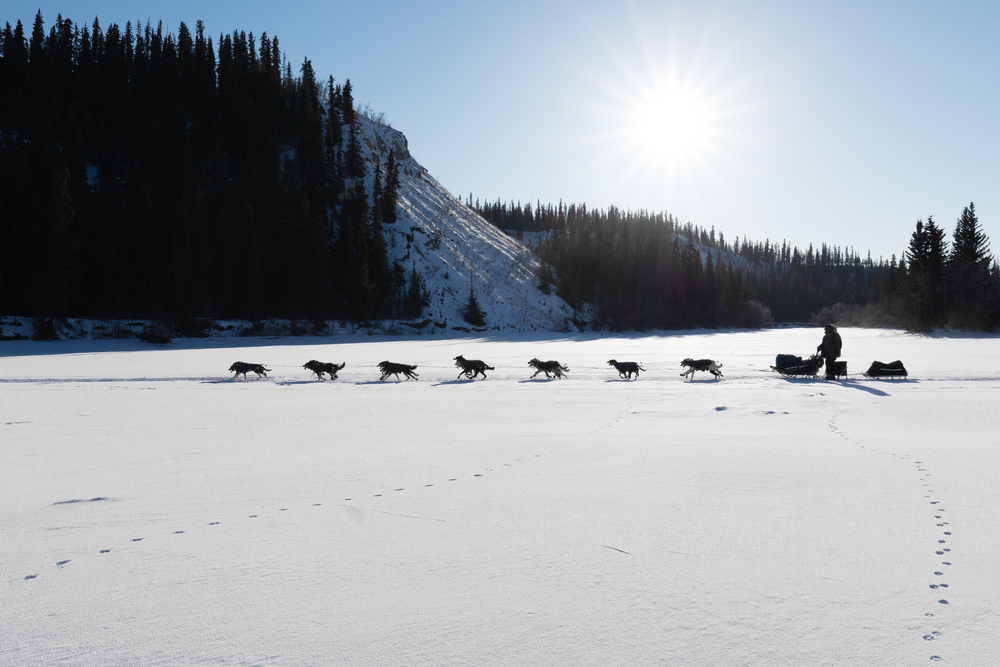
There is a unique job available in the Yukon: dog mushing. This is where you can help look after sled dogs in exchange for food and accommodation. Working with the dogs is a popular dream (for locals as well as working holiday makers), so competition will be tough. There’s no easy solution; you just have to be persistent contacting kennels around Whitehorse to inquire about vacancies.
Daily life in Whitehorse
Sport
Whitehorse has a superb sports complex: the Canada Games Centre (CGC), which has every sport you could think of (swimming pool, jogging track, hockey field, indoor multi-sport field, gym, skating rink, fitness classes, etc.).
During the winter, you can pay for daily access to snowshoeing, cross-country skiing or fat biking trails at Whitehorse Nordic Centre. You can rent all the equipment you need for your winter sports on-site. In the summer, you can explore the trails on foot or by mountain bike, or try your hand at disc golf.
For downhill skiing, head to Mount Sima, located about 20 minutes south of Whitehorse.
Visit the City of Whitehorse website for more information about available sports facilities.
Dining out
People don’t move to Whitehorse for the food… However, here are some popular eateries:
- G&P On Main (pizzas, meat and seafood)
- Georgio’s (pasta and local cuts of meat)
- Dirty Northern Public House (pub fare)
- Burnt Toast Cafe (brunch plates, sandwiches and curries)
- Kind Cafe (healthy options)
- Baked Cafe and Bakery (coffee and baked goods)
- Java Connection (coffee and sandwiches)
Nightlife
The nightlife is also not the most exciting in Whitehorse, but there are some places that residents typically frequent:
- The Gold Pan Saloon (sports bar)
- The ’98 Hotel (historic hotel named after the gold rush and one of the oldest saloon bars still operating)
- The Woodcutter’s Blanket (cocktail bar and brewery)
- Yukon Brewing or Winterlong Brewing (local beers)
- The Boiler Room Bar (themed nights, e.g. trivia, comedy, dance, etc.)
- Northern Lights Bowling (glow in the dark bowling alley)
You can check the events section of What’s up Yukon to get a broader view of what’s on in Whitehorse (and elsewhere in the Yukon).
Culture
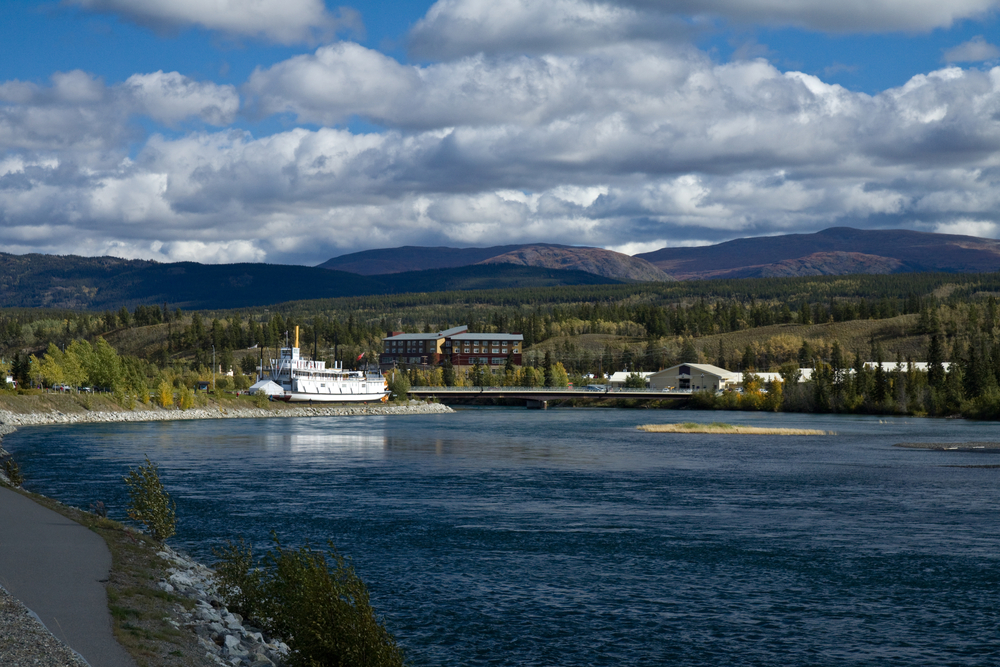
Despite its initial appearance, Whitehorse does have plenty to do:
The Yukon Tourism Office will give you a complete overview of what else you can do in Whitehorse.
Sightseeing
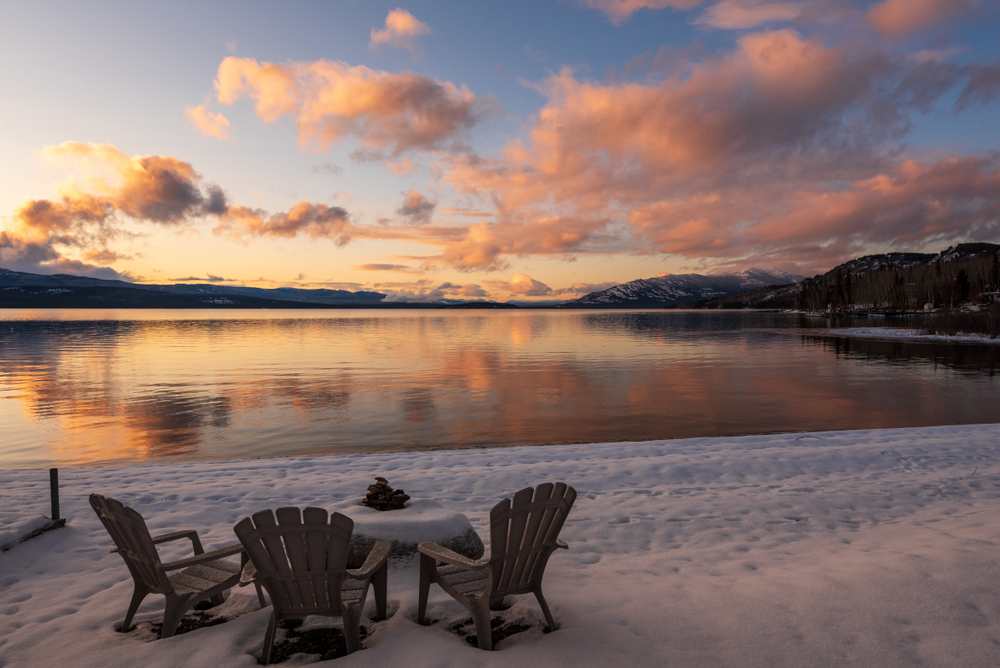
Moving to Whitehorse just for the city itself is honestly not the best idea. However, the surrounding area is full of cool things to do, which is the main draw for moving out here:
- Take a trip to the salmon hatchery
- Miles Canyon to Canyon City hike
- Grey Mountain trail for hiking
- Hidden Lakes or Long Lake
For more ideas, read 9 unique Yukon experiences to spice up your working holiday adventure in Canada.
Shopping
Whitehorse may be isolated and small, but you can still find everything you would need for day-to-day life.
For food, the main supermarkets are Walmart, Real Canadian Superstore, Wykes’ Your Independent Grocer and Save on Foods. Outside of the city centre, there are smaller grocery stores (Super A Foods) with less choice and higher prices. For organic/natural/vegan produce, try Riverside Grocery.
For clothing, there is the chain Mark’s, as well as a few independent and second-hand stores. For homeware, you can use Walmart, Canadian Tire or Home Hardware.
For outdoor equipment, turn to Coast Mountain Sports or Icycle Sports (you can either purchase or rent the items you need). Changing Gear is a second-hand shop with some real bargains!
If you have a vehicle, you can go to one of the three dumps located around Whitehorse (Marsh Lake, Lake Laberge or Annie Lake) to see if there are any quality items that have been left for free.
Main Street is mainly made up of souvenir shops. In Horwoods Mall (still on Main Street) there is some variety in shops, such as a cheese shop with excellent produce, a bagel shop and a toy store.












 Français
Français English
English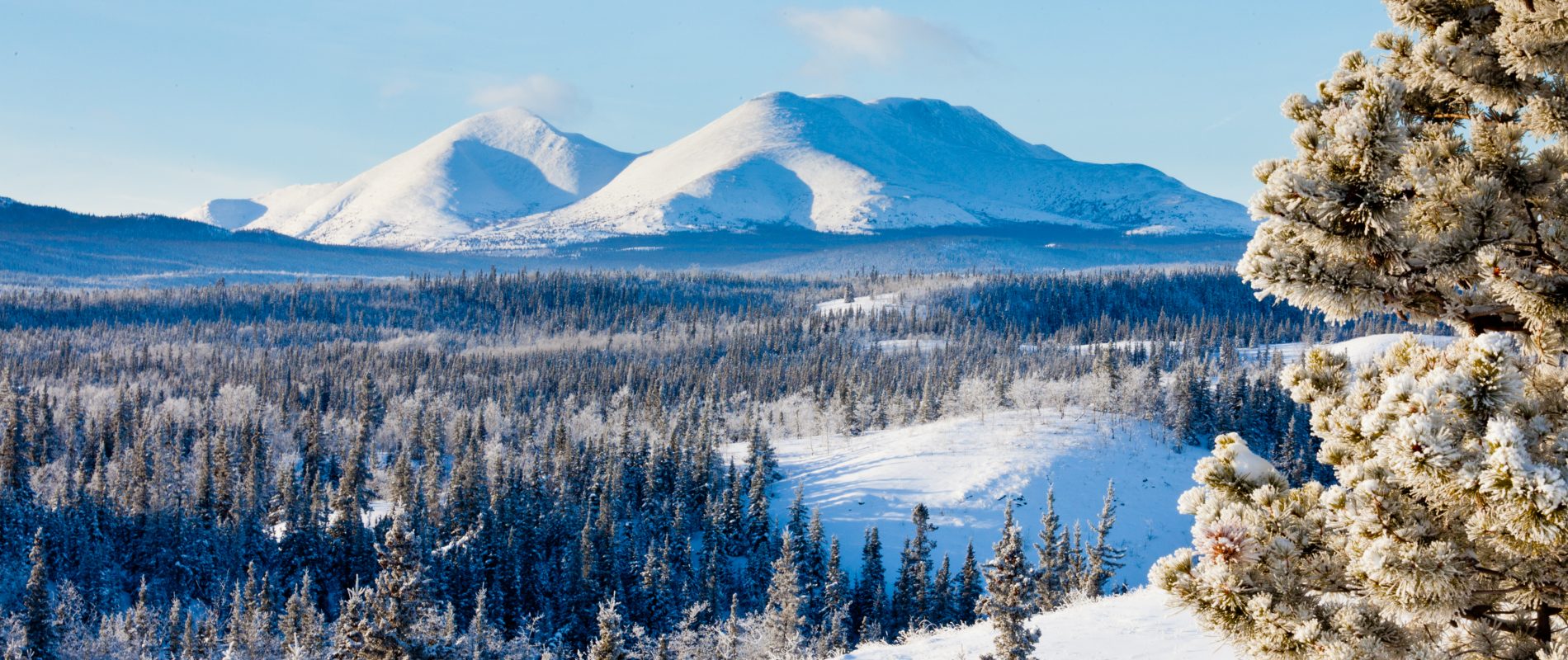





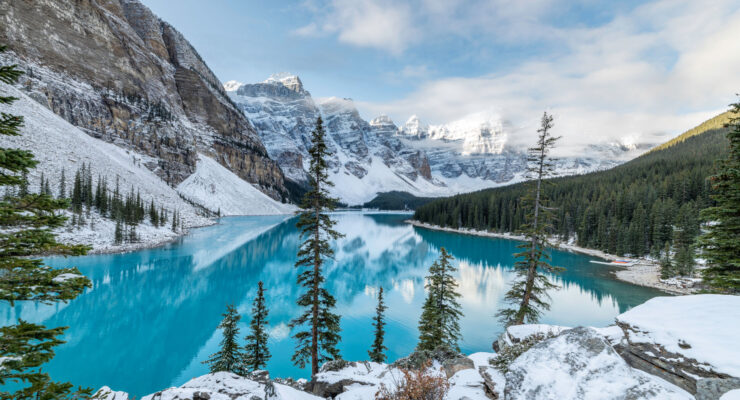

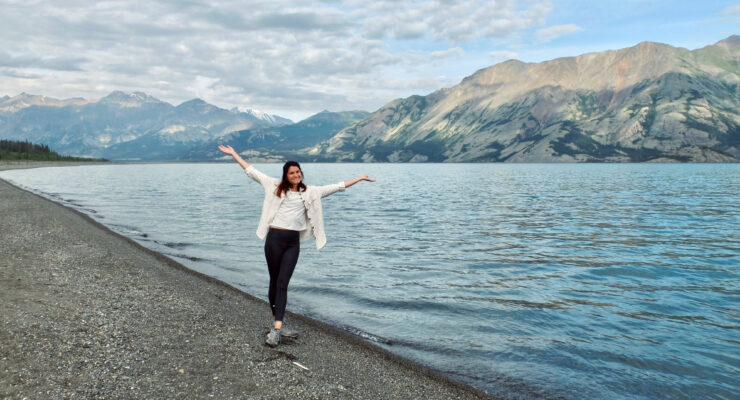
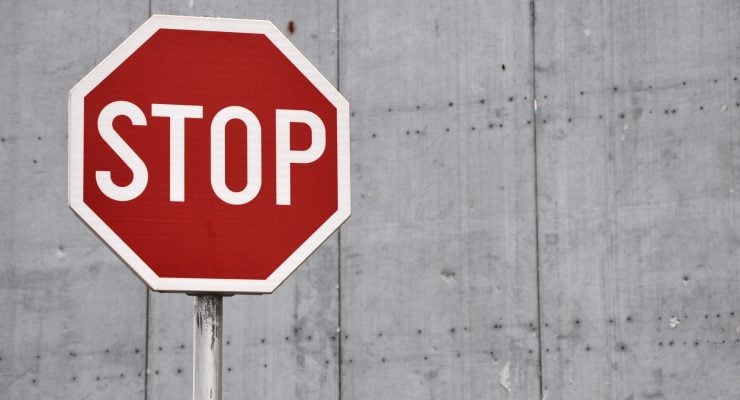
0 comments
{{like.username}}
Loading...
Load more